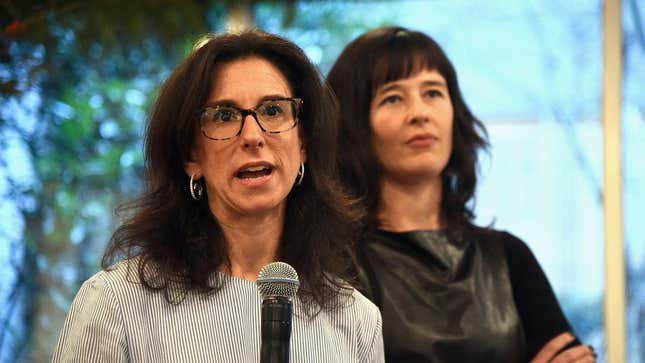Hollywood Was Complicit in Harvey Weinstein’s Abuse, and Now It Gets to Profit From It
With MeToo stories, Hollywood gets to have its cake and eat it too
Latest

Deadline reported Monday that actresses Carey Mulligan and Zoe Kazan will portray New York Times reporters Megan Twohey and Jodi Kantor in a new movie chronicling how they broke the allegations that Harvey Weinstein had assaulted multiple actors over the last several decades. An adaptation of Twohey and Kantor’s best-selling book She Said: Breaking the Sexual Harassment Story That Helped Ignite a Movement, the film is an opportunity to remind audiences of the immense labor Twohey and Kantor put into their enormous investigation, one which was often overshadowed and even erased by glowing, celebrity coverage of Ronan Farrow’s reporting at The New Yorker. But the investigation’s transformation from Pulitzer-prize winning journalism into Hollywood film feels slightly perverse given its subject matter: the complicity of Hollywood and the film industry in the abuse itself.
-

-

-

-

-

-

-

-

-

-

-

-

-

-

-

-

-

-

-

-

-

-

-

-

-

-

-

-

-

-

-

-

-

-

-

-

-

-

-

-








































